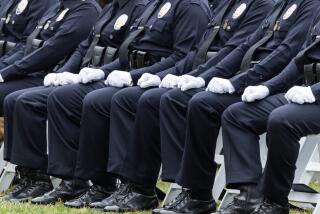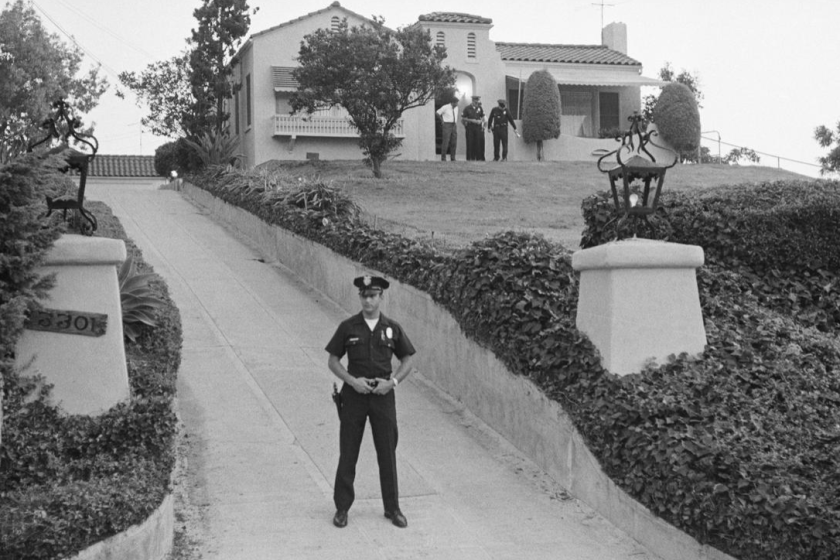Justice Dept. looks into state’s ban on prison-guard beards
SACRAMENTO — California’s policy barring beards on prison guards has come under scrutiny by the U.S. Justice Department after a discrimination lawsuit by a Sikh man who said he was denied a job because of his facial hair, which is part of his religious practice.
The California Department of Corrections and Rehabilitation settled the lawsuit last year by paying $295,000 to the plaintiff, Trilochan Oberoi, and giving him a $61,000-a-year administrative job. He had been told he would have to shave to be considered for a prison guard job.
But the state has maintained its no-beard policy, citing safety issues. Prison guards must be able to wear gas masks during emergencies.
Prisons spokeswoman Terry Thornton said she could not comment on the state’s policy “because we are currently under investigation of the U.S. Department of Justice.”
San Francisco attorney Harmeet Kaur Dhillon, who represents Oberoi, said she is cooperating with the federal investigation.
“I can confirm that my case is the reason why the investigation was initiated by the Civil Rights Division of the United State Department of Justice,” Dhillon said.
State officials say California rules are identical to regulations by the federal Occupational Health and Safety Administration: “The employer shall not permit respirators with tight-fitting facepieces to be worn by employees who have … facial hair that comes between the sealing surface of the facepiece and the face or that interferes with valve function.”
Dhillon, who is also a Sikh, said that there are gas masks available that can be used by bearded men, but that the corrections department has declined to approve them. Evidence collected during Oberoi’s lawsuit raised doubts about how the state policy is applied, Dhillon said.
“Our discovery during the case found that the CDCR made numerous waivers” for people with medical conditions,” she said. “They had grandfathered people with beards for many years.”
Mitchell Rivard of the U.S. Department of Justice declined to comment on the matter.
Oberoi, a former Indian navy officer, had passed all the other tests required of potential prison guards. When he was told he would have to shave, he filed a complaint with the state Personnel Board, which ruled that the corrections agency discriminated against him by violating his right to freely practice his religion.
The prison agency has hired correctional officers, or COs, who can’t shave their beards because of skin conditions and lets them use a different mask, but did not consider alternatives for Oberoi, the board found.
“It is difficult to imagine why [the agency] cannot extend the same accommodation to CO’s who cannot shave for religious reasons,” the board said in its written decision.
When the prison agency refused to change its policy, Oberoi sued. He declined to directly comment to The Times on the case. Dhillon said the settlement terms in his case limit what Oberoi can say.
In 2008, Oberoi told the Sacramento Bee that he would not trade his beard for a job: “Inside, I’ll die if I cut my beard. Once you touch the razor or touch the scissor, your religion is gone.”
Dhillon said she hopes the federal investigation will spur a change of state policy. She said she was encouraged when Gov. Jerry Brown last month signed legislation prohibiting workplace discrimination based on religious dress and facial hair, unless it can be shown to be an unreasonable burden.
The case has won praise for President Obama and his Justice Department from Dhillon, who is chairwoman of the Republican Party of San Francisco.
“I do have to commend the president and the Department of Justice,” she said, “for taking leadership on this issue of working toward eliminating one of the final OK forms of discrimination in the United States workplace, which is for religious belief.”
More to Read
Start your day right
Sign up for Essential California for news, features and recommendations from the L.A. Times and beyond in your inbox six days a week.
You may occasionally receive promotional content from the Los Angeles Times.







